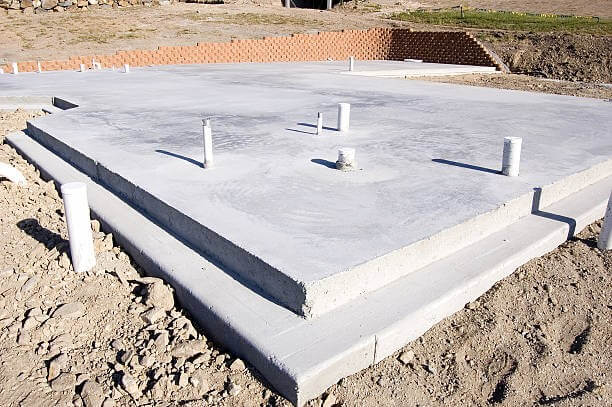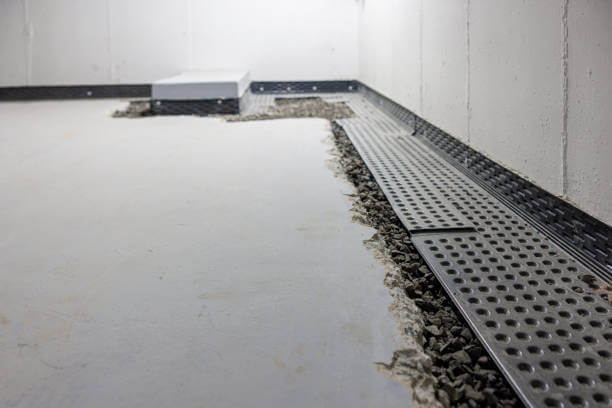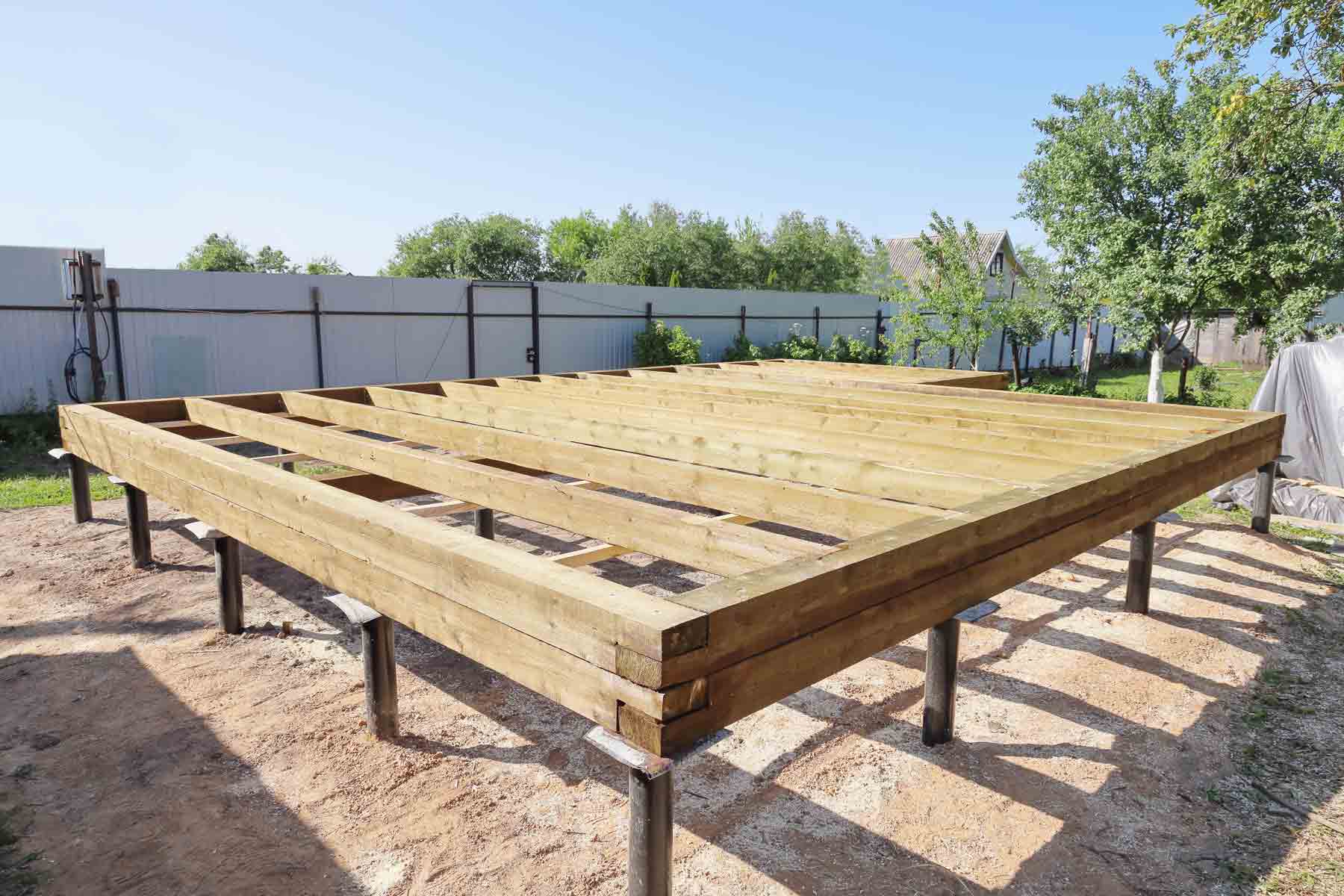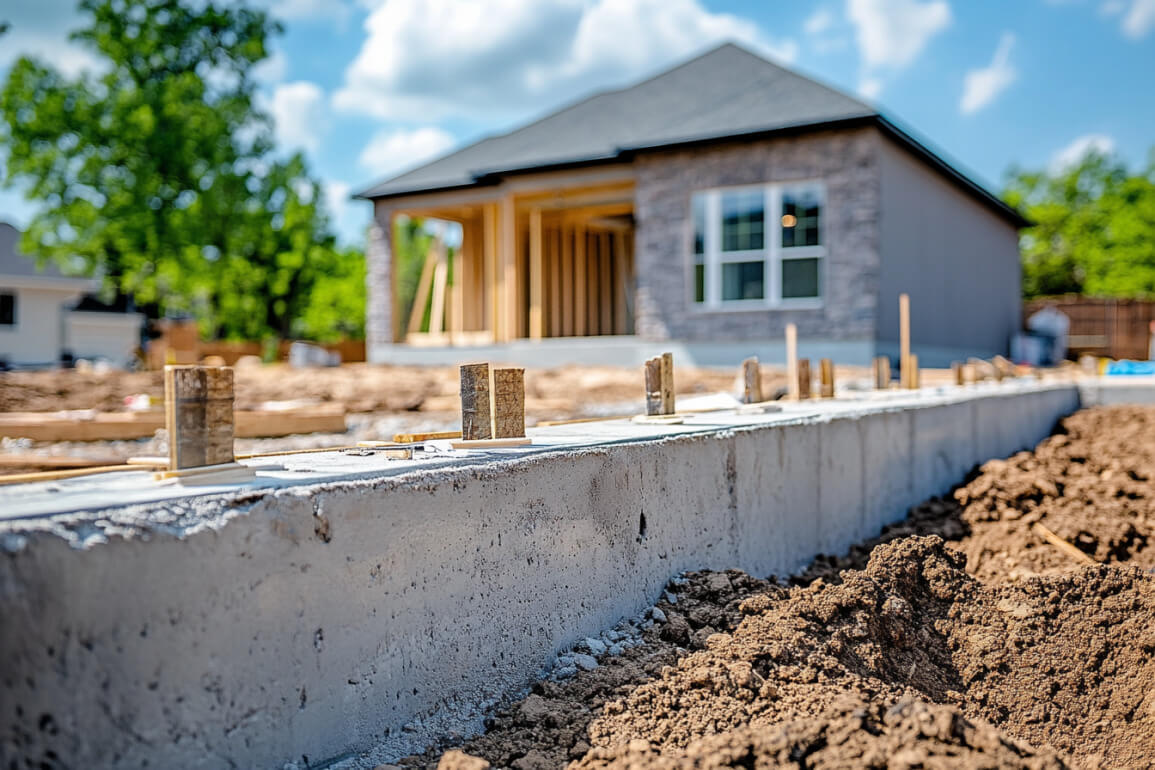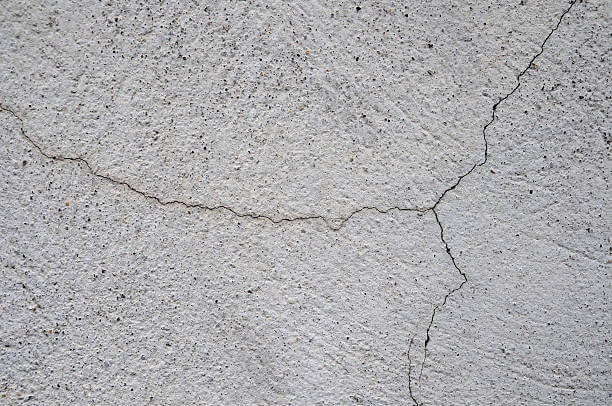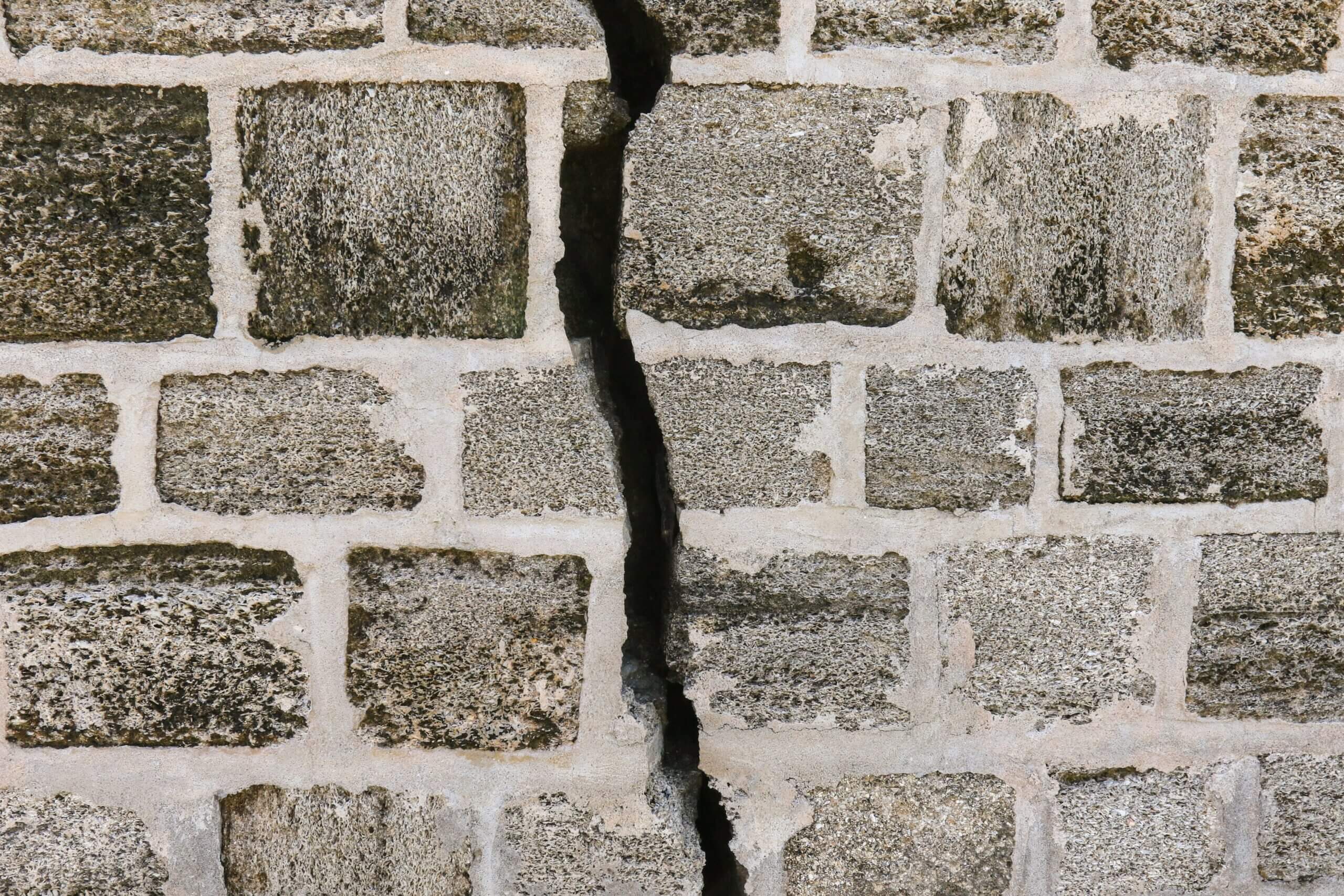What Is a Foundation Wall?
A foundation wall is the vertical structure that supports your home’s weight and transfers it to the footings and soil below. It’s one of the most important parts of your home’s foundation system, keeping your home level, stable, and protected from moisture.
If you have a basement or crawl space, those concrete or masonry walls surrounding the area are your foundation walls. They hold back the surrounding soil, resist water pressure, and support the load of your home’s framing and floors above.
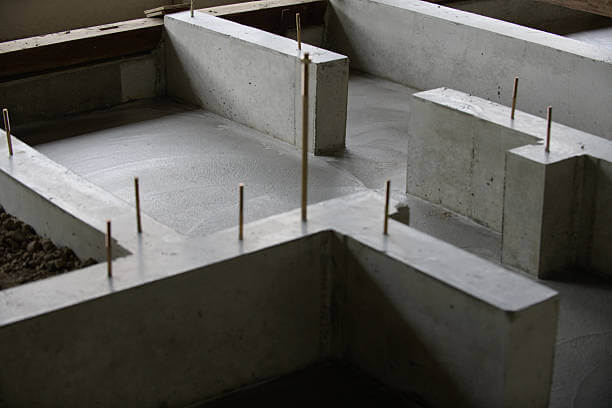
Types of Foundation Walls
The material and construction of your foundation wall depend on your home’s design, soil type, and local building codes. Here are the most common types homeowners will see:
Concrete Foundation Walls
Poured concrete is the most common material for modern homes. It provides strong, seamless protection against moisture and can be reinforced with rebar for extra strength.
Masonry Block Walls
Older homes often use concrete masonry units (CMUs) or cinder blocks. While affordable and easy to build, block walls can crack or bow under soil pressure if not properly reinforced or waterproofed.
Precast or Insulated Concrete Forms (ICFs)
These newer systems use factory-made panels or insulated forms to create walls that are energy-efficient and durable. They’re an increasingly popular choice for new builds.
» Related: Learn about the different types of home foundations
How Foundation Walls Work
Foundation walls serve several key structural and protective functions:
- Load Bearing: They transfer the vertical load from your home into the footings and soil.
- Lateral Resistance: They hold back the surrounding soil, especially in basements.
- Moisture Barrier: They prevent groundwater from entering your living space.
- Insulation and Energy Efficiency: When properly insulated, they help regulate indoor temperatures and reduce energy costs.
In short, the foundation wall is what keeps your home grounded and dry — literally.
» Related: See the parts of a foundation system and how they work together
Get free quotes from trusted foundation pros near you.
Common Problems with Foundation Walls
Over time, foundation walls can show signs of wear or stress. Addressing small issues early can help you avoid costly repairs later.
Cracks or Bowing Walls
Small hairline cracks are common as concrete cures, but large diagonal or horizontal cracks could indicate soil pressure or settling issues.
Water Seepage and Dampness
Hydrostatic pressure, poor drainage, or missing waterproofing can cause water to seep through your walls. Signs include white powder (efflorescence), damp smells, or peeling paint.
Shifting or Settling Walls
Uneven settling or poor soil compaction can cause sections of your foundation wall to lean or shift.
Mold or Mildew
Persistent moisture along basement walls can create health risks for homeowners and signal a waterproofing problem.
» Related: Early warning signs of foundation issues and the health risks of a damp basement.
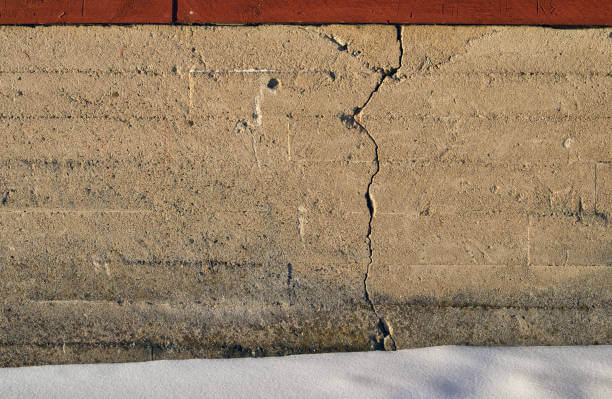
How to Maintain Your Foundation Walls
Regular maintenance is key to protecting your foundation and avoiding water or structural damage. Here are simple steps homeowners can take:
- Clean gutters and downspouts so water flows away from your foundation.
- Slope the ground so it drains away from your home.
- Seal small cracks as soon as they appear.
- Inspect your basement or crawl space twice a year for signs of dampness or movement.
- Avoid planting large trees too close to your foundation; roots can shift the soil.
» Related: Foundation maintenance tips to protect your home
Repair and Waterproofing Options
If you spot cracks, moisture, or bowing walls, it’s important to take action before the problem worsens.
Foundation Wall Repair Methods
- Epoxy or polyurethane injections: Seal small cracks and prevent water intrusion.
- Wall anchors or carbon fiber strips: Reinforce bowing walls.
- Piering or underpinning: Stabilize walls that have shifted due to poor soil.
Waterproofing Your Foundation Walls
There are two main methods:
- Interior waterproofing (like sump pumps and drainage channels) helps manage water after it enters.
- Exterior waterproofing (like membranes and coatings) prevents water from entering in the first place.
When to Call a Foundation Contractor
You should contact a foundation contractor if you notice:
- Cracks wider than ¼ inch
- Bowing or bulging walls
- Windows or doors that stick suddenly
- Gaps between your foundation and framing
- Persistent basement leaks or flooding
A professional inspection can determine whether the issue is structural, cosmetic, or moisture-related and recommend repair options that fit your home and budget.
» Related: How to choose a foundation contractor you can trust
Bottom Line
Foundation walls are the unsung heroes of your home’s structure. By understanding how they work and spotting problems early, you can protect your home from costly damage.
If you’ve noticed cracks, dampness, or shifting walls, it’s time to get an expert opinion.
Get free quotes from trusted foundation pros near you.
Compare top-rated foundations pros in your area.
Read real homeowner reviews, explore qualifications, and view promotions. Modernize makes it easy to browse professionals and find one that will be perfect for your project.




